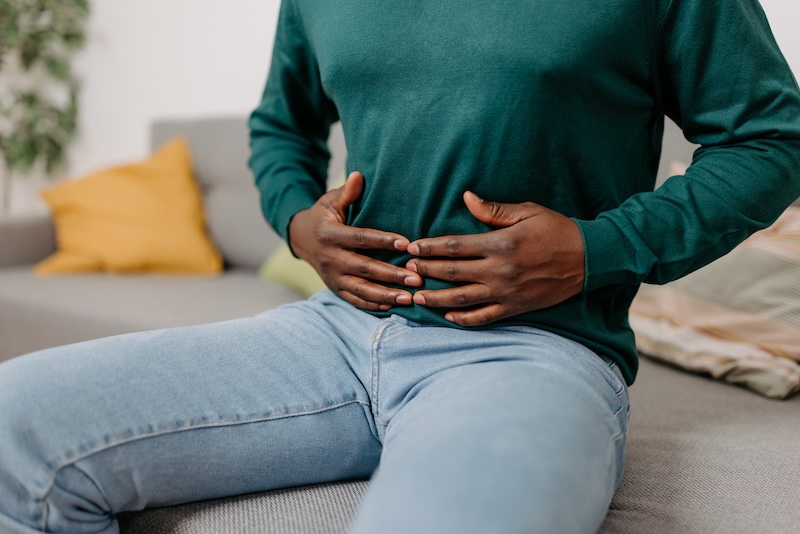The Connection Between Your Gut and Your Mind
Inside each of our gastrointestinal (GI) tracts live millions of organisms and bacteria that aid in our bodies’ ability to function optimally. These little helpers have a hand in everything. From breaking down the food we eat to protecting us from pathogens and regulating immunity, our bodies rely on an army of bacteria called our microbiome.
But our gut microbiome affects more than just our digestive and immune health. Researchers are finding evidence that gut issues, such as irritation in the gastrointestinal system, may send signals to the central nervous system (CNS) that trigger changes in our mood. Other studies have found an association with higher rates of depression and anxiety in patients with GI disorders.
We already know that genetics, traumatic events, and environmental factors can affect a person’s mental health. Now, we are learning just how much our gut health may be involved, as well. With rates of wellness-related issues rising each year, it’s time to find proactive ways to address our concerns involving gut health, mental health, and overall well-being.
Diet, Dopamine, and Depression: How Are They Related?
We ingest around a million microbes in every gram of food we eat. For this reason, diet is considered one of the main drivers in shaping gut health across our lifetime. If we want to preserve our mental health, we have to look at what we consume.
In a study of 502,494 middle-aged adults, scientists found that high intakes of vegetables, fruits, and fiber were positively associated with mental health. In contrast, diets high in saturated fats and processed sugars may have detrimental effects on brain health, including cognitive decline, hippocampal dysfunction, and damage to the blood-brain barrier.
In addition, the gut microbiota produces and regulates neurotransmitters such as serotonin, dopamine, and glutamate. In fact, 95% of your serotonin is produced in your gastrointestinal tract! These neurotransmitters play important roles in neurological and immunological activities in the brain, including regulating sleep and appetite, mediating moods, and inhibiting pain. What’s more, mental health conditions such as anxiety and depression are connected to our microbiome, too.
In a three-part study, researchers identified that patients with generalized anxiety disorder (GAD) had lower microbial richness and diversity compared to the healthy control group. Similarly, in studies focused on depression, gut microbiota composition significantly changed in depressive individuals. These findings indicate that gut health could be a new target for innovations in the prevention and management of depression and anxiety.
Want to Improve Your Mental Health? Take Control of Your Gut Health.
Does gut health affect mental health? Research indicates yes. Our gut microbiome is a constantly evolving ecosystem that starts to form when we are born. What we eat and our genetic makeup both play a role in the bacterial diversity found in our gut.
When our microbiome is thrown off balance, our bodies suffer, mentally and physically. There are ways we can help support a healthy gut and improve our mental well-being:
1. Find Out What’s Going on In Your Gut
The best way to figure out how your body functions and what it is missing is to take a blood test and a genetic test. These tests give you a personalized look at two of the main factors that could be contributing to an unhealthy gut: diet and genetics. From there, you can take the necessary steps to heal your gut and improve your mental health!
2. Supplement with Pre and Probiotics
We’ve already discussed the importance of a balanced diet for the well-being of your microbiome and mental health. The other nutritional elements to consider are prebiotics and probiotics. Pre and probiotics are bacteria that are good for your gut. You can find these in foods and beverages like kefir, kimchi, and kombucha or in supplement form with easy-to-digest capsules. Pre and probiotics are essential to supporting your gut microbiome by filling it with healthy bacteria. Especially after taking antibiotics, replenishing your gut microbiome is essential!
3. Stay Hydrated
Not only does hydration allow our bodies to break down the vital nutrients we put in, but water also assists in flushing waste and toxins out of our system. Inadequate water intake can cause an imbalance in electrolytes, affecting the ability of the muscles in the digestive tract to move food efficiently through the system, potentially causing bloating, discomfort, and slowed digestion. Put more simply, our bodies need water to operate properly!
–
Ready to take control of your mental and physical well-being? Optimal gut health starts with your genes. Order a 10X Health Precision Genetic Test to learn exactly what your body needs to jumpstart your wellness journey!
